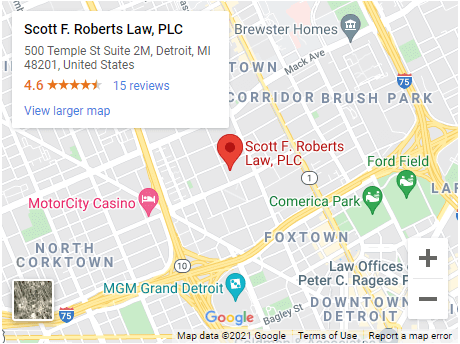One of the major hurdles for Michigan cannabis business owners is finding financing for their medical and recreational marijuana projects. Due to the fact that marijuana is considered a controlled substance under the Controlled Substances Act, traditional bank and credit union financing is not available to plant-touching cannabis businesses. While it is certainly more difficult to obtain financing for your cannabis company, it is not impossible.
As Michigan Cannabis Attorneys, we work with cannabis investors as well as cannabis lending brokers who are able to connect Michigan marijuana companies with private lenders. Below we will outline options for Michigan cannabis companies looking to raise capital for their marijuana facilities.
Debt Financing

Contrary to popular belief, debt financing is available in the cannabis industry, though lenders are few and far between. As cannabis business attorneys, we work with two cannabis industry lending brokers that connect private lenders with cannabis companies. Each lending broker has his own network of private individuals, hedge funds, and non-bank capital companies they work with to secure debt funding for marijuana businesses.
While debt financing is available, the terms are usually much less favorable compared to traditional bank lending. The reason is simple—there are lots of cannabis companies looking for financing, and not that many individuals and entities looking to lend to them. Add in the additional legal risk arising from the fact that marijuana is still a controlled substance under federal law, and the result is lending on terms that are much less favorable then traditional business loans.
When evaluating financing opportunities, lenders are focused on three main items. The first is hard assets, which can be assets owned by the company—such as real estate or equipment—or assets owned by one of the owners that is put up as collateral. These assets are then used to secure the loan through the use of mortgages for real property or the UCC for personal property such as equipment. In the cannabis space, lenders generally don’t go beyond 60% “loan to value”. This means they will not lend more than 60% of the value of the assets securing the loan.
Just as important as hard assets is cash flow, which can represent a catch-22 for start-up cannabis businesses looking for a loan. A business may not be able to achieve cash flow without financing, but cannot obtain financing without cash flow. While it is certainly possible to obtain financing without securing the loan with such cash flow, it does become more difficult. Most lenders will not allow owners to use income derived from their jobs as cash flow as it’s assumed that they will leave their jobs to run the business. Instead, they are looking for non-employment sources of cash flow, either from the company’s revenue or from other sources, such as real estate income.
Finally, the last major factor cannabis lenders look for is operating experience and management expertise. Cannabis companies are often risky ventures—with high reward often comes high risk. This risk is compounded if a company’s owners and management team are not familiar with the cannabis industry. Put simply, cannabis lenders want to see industry experience, as well as a track record of success. Companies that are able to show both of these may be able to overcome shortcomings in other aspects of their loan, such as insufficient cash flow or a lack of sufficient hard assets to lend against.
Equity Financing

As discussed in more detail in our previous article, Five Keys for Michigan Companies Seeking Cannabis Investors, equity financing is available in the cannabis industry. While we have a network of potential Michigan based investors, in our experience, clients who raise money from friends and family are almost always able to get better terms than our investor networks. If this is available to you, friends and family are likely to offer the best investing terms for your cannabis business. The reason is simple—friends and family know who you are, and if they are willing to lend you money, it usually means they trust you. The “trust factor” is often the greatest hurdle cannabis companies need to overcome when seeking out equity financing for their cannabis company.
Absent raising money from friends and family, there are a few options available to start-up cannabis companies. One option is to identify a partner, as opposed to a mere investor. The different between a partner and an investor is not always clear cut, but the gist of it is that a partner is involved in the business beyond just a mere investment, whereas an investor would simply invest money in your marijuana business without being actively involved in the operations of your business. The advantage to adding partners is that you get more than just additional financing—you get help in launching your cannabis business. The downside, of course, is that a partner will usually want more equity than an investor, since a partner is investing both time and money into your business.
Another option is to put together a solid pitch deck and take your show on the road. We have had clients raise millions of dollars from investors based on the strength of their pitch deck and investment presentation. When creating a pitch deck and investor presentation, sometimes less is more. You will want to provide an investor with the basics of the investment opportunity, as well as information on the projected rate of return.
Here, it is important that you will be able to defend the assumptions underlying your projections and not paint too rosy of a picture. I’ve seen clients project $50 million in profits within the first year based on overly-optimistic assumptions regarding the wholesale price of marijuana as well as their cost factors in running their marijuana facility. While seemingly counter-intuitive, nothing scares away investors faster than sky high profit projections and returns on capital. Too rosy of a projection will lose potential investors trust, which will in turn make it a virtual impossibility that they will invest money with you. Instead, you will need to be realistic in your revenue and project projections and explain the assumptions you used when calculating your return on capital.
Conclusion
As a cannabis company, there are two main avenues to raise money—debt and equity financing. Individuals and entities willing to lend money to cannabis businesses are few and far between. For debt financing, single digit interest rates are exceedingly rare, and the terms are often incredibly unfavorable compared to traditional bank financing. While this could change if the SAFE Banking Act is passed, for the time being banks and credit unions will not lend to the Cannabis industry, leaving companies to chase after a handful of private lenders.
In contrast to private lending, more individuals are willing to invest in cannabis companies than are willing to engage in pure debt transactions. While friends and family will likely offer you the best terms, you may be able to raise financing on favorable terms with a combination of a well-crafted pitch deck and being in front of the right cannabis investor.
Scott F. Roberts Law is a Michigan cannabis business law firm focused on representing Michigan marijuana businesses of all sizes and types in licensing, as well as regulatory compliance, business, real estate and municipal matters. Contact us today to schedule a free consultation with a qualified Michigan cannabis attorney.




